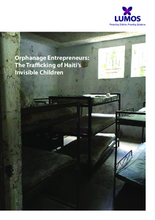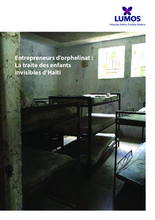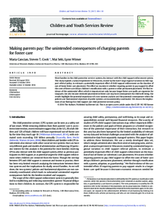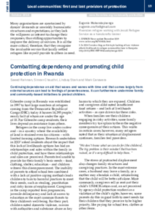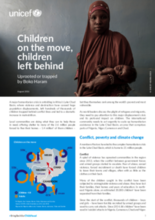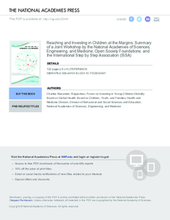Displaying 291 - 300 of 505
This documentary tells the stories of four Aboriginal grandmothers in Australia whose grandchildren have been removed and placed in state care, and who are fighting to have their grandchildren placed in their care.
According to this report from Lumos, of the estimated 32,000 children who live in orphanages in Haiti, only 20 are percent orphans.
On estime que 32 000 enfants vivent dans des orphelinats en Haïti.
This study examines whether requiring parents to pay child support to offset the costs of foster care delays children's permanent placement, whether through reunification with a parent, adoption, or guardianship.
According to this article from Forced Migration Review, when the majority of aid comes from external sources, it can cause those who receive the aid to feel powerless.
Kathryn Joyce discusses the issues that one mother in Uganda faced when she put her child up for international adoption.
This paper analyses the experiences of adolescents in foster care placement with specific reference to participatory decision making in an indigenous African cultural context in South Africa.
This article describes a study in which researchers explored the emotional and psychological health of China's left-behind children (LBC) by identifiying the differences in levels of happiness, self-esteem and anxiety between LBC and non-LBC.
This article discusses the major population displacement that unfolded in Africa’s Lake Chad Basin.
To examine the science, economics, and politics of investing in the health, education, nutrition, and social protection of children at the margins, the Forum on Investing in Young Children Globally (iYCG Forum) held a workshop in Prague, Czech Republic, on November 3–4, 2015, titled, “Reaching and Investing in Children at the Margins.” This report summarizes the workshop and highlights the key learning from the event.

